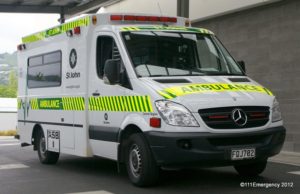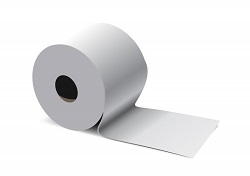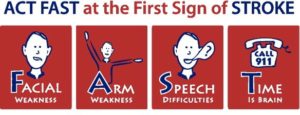 When you’re taking anticoagulants, you’re trying to hit the happy medium between the risk of having a clot and the risk of bleeding. Which is the rock and which the hard place, I wonder? If you’re using the pharmacy service or our app to manage your warfarin you can see this pictorially on the graph of your INR results against the ideal range. You can see when your INR is too low – risk of a clot, or too high – risk of a bleed.
When you’re taking anticoagulants, you’re trying to hit the happy medium between the risk of having a clot and the risk of bleeding. Which is the rock and which the hard place, I wonder? If you’re using the pharmacy service or our app to manage your warfarin you can see this pictorially on the graph of your INR results against the ideal range. You can see when your INR is too low – risk of a clot, or too high – risk of a bleed.
So everyone on anticoagulants must be aware of the possibility of bleeding and know what to do if it occurs. We’ve divided bleeding into the big, where there is obvious major blood loss; the bad, where you may not see blood loss but there is still extreme danger, and the ugly, where the bleeding is minor and less dangerous.
The Big
1. B ody Bleeding
ody Bleeding
What to do?
You need to go to your doctor if you start coughing up blood (haemoptysis), passing blood in your urine (haematuria) or pass bright red blood from your back passage. If you start vomiting blood (haematemesis) you should treat this more seriously and contact your doctor or go to the emergency department as soon as possible.
2. Following a major accident
What to do?
Tell ambulance and emergency department staff that you are on anticoagulants. If you are unconscious, they will look to see if you have a medic-alert bracelet or emergency information on your phone, so it is worth sorting this out. If after a head injury you develop a persistent headache, drowsiness or start vomiting, it could be a sign of a bleed in the brain (intracranial bleed), so you should go to hospital immediately for further investigation.
The Bad
Two dangerous situations where you won’t see any blood are a bleed in the brain (intracranial bleed) and passing tarry black bowel motions (melaena)
1. Intracranial bleed
This presents with the signs of stroke It doesn’t often present with a headache. Remember the acronym FAST
- F face droop
- A can’t lift arm
- S speech slurred
- T time – act fast
What to do?
As the acronym says, get to the emergency department FAST
2. Melaena
 Tarry black bowel motions, that have a really terrible smell, may mean there has been a bleed in your stomach and the blood has changed in character as it’s passed through your gastro-intestinal tract
Tarry black bowel motions, that have a really terrible smell, may mean there has been a bleed in your stomach and the blood has changed in character as it’s passed through your gastro-intestinal tract
What to do?
Contact your doctor to discuss how urgent the situation is. If you can’t contact your doctor go to the emergency department.
What will happen in the emergency department?
Staff will examine you and assess the seriousness of your condition. You will probably need a drip and have blood tests to see how well your blood is clotting (including an INR test if you are on warfarin) and whether you need a blood transfusion. You may need a reversal agent; vitamin K if you are on warfarin, or a specific antidote to other anticoagulant drugs if they are approved in your country. If there is no agent available and the bleeding is serious, you may need dialysis to clear your anticoagulant drug from your blood.
The ugly
The ugly truth is you may feel you look like you’re starring in a horror movie because you have bruising, a nose bleed, bleeding from shaving cuts or around your gums when you brush your teeth. These tend not to be very important bleeds from a medical point of view though.
What to do?
- Bruising – you only need to contact your doctor if the bruise measures more than 5 cm or you have multiple unexplained bruises.
- Nose bleeds – you only need to attend the emergency department if the nose bleed lasts more than 30 mins. Otherwise sit up, pinch your nose and spit any blood into a bowl, until the nose bleed stops.
- Gum bleeding – practice good dental hygiene. Consider using a water flosser if flossing brushes or tape cause bleeding.
- Small cuts – apply pressure then a plaster
If any of the above occur frequently it may mean you are on too much anticoagulant. If you are on warfarin an INR should be checked, for the other anticoagulants it is important to check your kidney function.



Good Morning Paul ,
Just a small interesting thing with nose bleeds , I have found that if I use “Otravine” nose spray too much I will get a nose bleed that will annoy me for a few days off and on .
I now do not use Otravine at all ..
Kind regards…Kevin Stent
Thanks Kevin, that is useful to know. This type of nasal spray can cause some dryness and local irritation and that may be enough to cause bleeding.
Congrats Paul and Angela for setting up such a great site.
Daryl